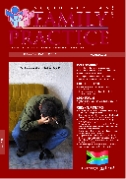The Prevalence and Reasons for Interruption of Antituberculosis Treatment by Patients at Mbekweni Health Centre in King Sabata Dalidyebo (KSD) District in the Eastern Cape Province.
Keywords:
TB, DOTS, Interruption, Patient education, Holistic and continuity of care
Abstract
Background: In spite of effective therapy, tuberculosis (TB) is still a major health problem in developing countries, thus in 1993 the World Health Organization declared TB a global emergency. In South Africa TB is one of the most prevalent diseases with an incidence of 556/100000 population. In spite of free TB drugs in the public service and the directly observed (DOTS) strategies, there is still a high prevalence of TB and treatment interruption rate in rural South Africa. Objective: To establish the prevalence and reasons for interruption of TB treatment by patients attending Mbekweni health centre. Methods: This was a cross sectional study in which data was collected between the period 15th July 2004 to 15th January 2005 from patients who were on TB treatment and interrupted their treatment between the period 6th August 2001 to 30 December 2003 at Mbekweni health center in King Sabata Dalidyebo (KSD) district in the Eastern Cape province. Results: Out of 255 TB patients who attended for treatment, 121 (47.5%) interrupted treatment. Reasons given for interruption included change of living place (18.96%), no money to go to clinic (15.52%), feeling better (13.78%), side effects of drug (6.90%), did not know the treatment course (5.17%), physical disability either old or too sick to collect treatment and no body to help (5.17%), drug not available in the clinic (13.83%), no reasons (8.62%). Conclusion: The prevalence of treatment interruption was high in this study. Change of living place, lack of money for visiting the clinic to collect treatment, feeling better, no drugs at the clinic were the major reasons given for interruption of treatment plus others including no reason. Ensuring availability of TB drugs at the health centre/clinic, patient education about TB and strengthening the DOTS program including a stipend for the DOTS supervisors would help to reduce the prevalence of treatment interruption.
Published
2008-09-02
Section
Original Research
By submitting manuscripts to SAFP, authors of original articles are assigning copyright to the South African Academy of Family Physicians. Copyright of review articles are assigned to the Publisher, Medpharm Publications (Pty) Ltd, unless otherwise specified. Authors may use their own work after publication without written permission, provided they acknowledge the original source. Individuals and academic institutions may freely copy and distribute articles published in SAFP for educational and research purposes without obtaining permission.

